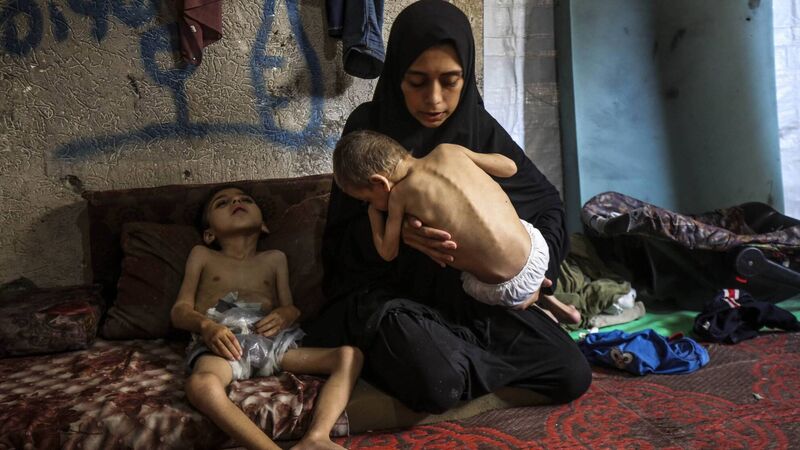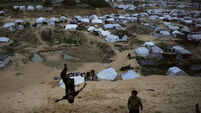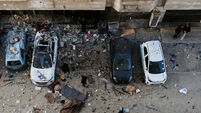Our children draw pictures of bombs and graves

Six-year-old Yusuf Abdurrahman Matar and his four-year-old brother Emir Abdurrahman Matar faced life-threatening malnutrition in July in Gaza City. At the moment, 90% of children under five are malnourished. Babies are dying. Photo: Mahmoud Issa/Anadolu via Getty Images
Two years ago this week my world, the world of my family, and the hopes and dreams of the people of Gaza, started to shatter. It has been two years of relentless bombing, displacement, and despair. For more than 2.2 million people it has been two years of hell.
I speak as a father of three and a humanitarian worker with ActionAid Palestine who has been living the horror of this brutal conflict every single day.
















